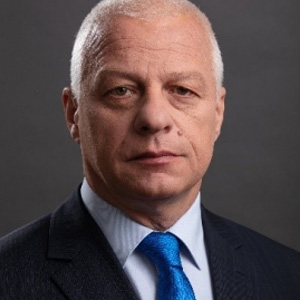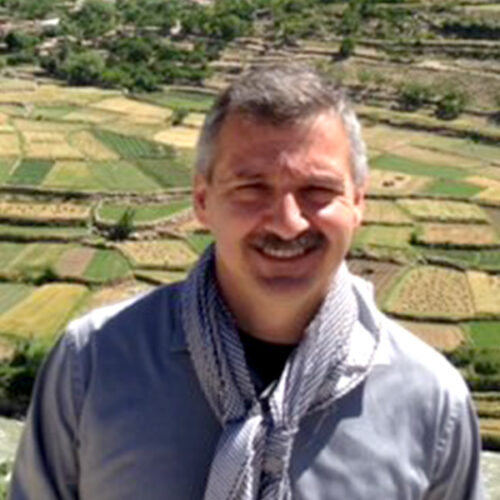
Health and Corruption
Summary
Health and Corruption
In every country on the planet, people suffer and die due to corruption in the healthcare sector. Like most corruption, vulnerable populations who do not have the knowledge, money, or power to access services suffer disproportionately. While corruption permeates healthcare at many levels, the result almost always trickles down to effect healthcare services at the local level. Studies of corruption in the healthcare sector have identified eight primary areas where corruption adversely affects public services, it is these areas where UNISHKA concentrates its broad-spectrum anti-corruption in emerging economies:
Corruption in the Delivery of Healthcare Services
Corruption in the delivery of medical products and services not only adversely affects the health of millions of people around the world, it has resulted in fatal consequences for many, especially the most vulnerable segments of society (g. women and children). Research indicates that charges at the point of access significantly reduce a person’s likelihood of seeking help. Corruption in the delivery of healthcare is also a primary cause undermining the legitimacy of struggling governments which also adversely impacts security.
Corruption in Administration & Management
Corruption in the administration and management of clinics, hospitals, departments and ministries collectively results in death by a 1,000 cuts to the public health system. For example, during the Ebola outbreak in Sierra Leone, over a third of international donations went missing in the first six months and were never accounted. Not unrelated, according to Sierra Leone’s Anti-Corruption Commission, more than 23% of bribes reported on their anti-corruption hotline were paid to healthcare officials. Additionally, losses in the health sector are usually filled by foregoing services to vulnerable populations (e.g. women, children, AIDS/HIV patients, LGBTQ community, ethnic minorities, religious minorities, etc.).
Corruption in Distribution & Storage
During distribution and storage, drugs and medical products are at considerable risk from corruption. This includes theft, diversion and re-packaging expired or non-sterile products. This form of corruption is so rampant that ongoing criminal syndicates operate multi-million-dollar businesses by either operating black market sales of stolen drugs or legally purchasing aging drugs from hospitals at significant discounts, relabeling them, and then selling them back to the public sector. This is most prevalent in low and middle-income countries who lack proper supply chain management and oversight.
Corruption in the Procurement Process
Corruption in the procurement process is not limited to the health sector but can permeate virtually every government purchase. Procurement has different susceptibilities that can be exploited through corruption during the pre-bid, bid and post-bid process. Unlike most other government procurements, the medical field must also face sophisticated multi-national companies who often interact with the entire supply chain, including consumers, to create demand and reward prescribers or purchasing officers.
Corruption in Marketing
Globally, marketing interactions between suppliers and healthcare providers are controlled by both government- and self-regulation. Unfortunately, in much of the world, disclosing gifts and hospitality marketers provide to healthcare workers is not mandatory, therefore there is great potential for corruption. In such cases, marketers may provide explicit gifts and implicit grants to healthcare workers, ultimately influencing them to become a spokesperson of sorts. This is an extremely effective way to promote products and increase prescriptions for their products.
However, impropr gifts are not the only means through which corruption permeates in the healthcare marketing sector. Using post-marketing studies, widening diagnostic boundaries of illness, and setting the curriculum for continuing education programs are tools also used by marketers in the healthcare industry.
Corruption in Research & Development
The first stage in developing a product is research and development (R&D). During this stage, companies funding the R&D usually contract researchers at universities or contract research organizations to design, run, and report the results of the study. However, because the companies funding the R&D have an interest in getting their products to market, it the researchers may feel pressured to report positive results. Following this, the researchers may under-report negative findings or attempt to display the product in a more positive way.
In developing countries, where healthcare is scarce, declining to participate in a medical trial may mean refusing the only medical care available. This creates an issue with trial participants being unable give full consent to participate. While this is not the only instance where consent may be lacking, it is perhaps one of the most prevalent in the international development community.
In general, the main issues with corruption in healthcare R&D are:
- Abuse of funding systems;
- Improper study design;
- Improper study conduct; and
- Misleading reporting of the study.
Corruption in Healthcare Regulation
There are numerous ways in which corruption can adversely affect healthcare regulation. From inappropriate approval of products to unwarranted health college certifications, the issues stemming from corruption in the healthcare sector have the potential to be devastating. These types of corruption are not constrained to individual cases. Entire sections of healthcare regulation can be captured by select groups, termed regulatory capture, and as a result serve their personal interests. In these situations powerful individuals and companies will ensure that they benefit most from the regulatory process and can dominate the healthcare sector. To ensure regulation is successful and corruption risks minimized, regulatory agencies must be sufficiently resourced, independent from outside influence and have policies that ensure transparency and accountability for key procedures.
Corruption in Healthcare Policy and Legal Framework
Corruption in the policy and legal framework within the healthcare system has the potential to create the most serious and wide-ranging impacts affecting the services patients may receive. This corruption often starts with lobbying the appropriate governing body to ensure favorable policies are created. When this lobbying is done without integrity and transparency, groups with disproportionate resources compared to others in the healthcare sector are often able to exert an equally disproportionate influence. Alternatively, politicians may have connections or financial interests with suppliers or health facilities, creating a conflict of interest and likely inspiring them to develop favorable policies for specific groups. Overall, undue influence is the most threatening aspect to anti-corruption in healthcare sector's policy and legal frameworks.
UNISHKA Talent

Drago Kos
SME – HealthcareDrago Kos was one of the first Vice Presidents of the European Healthcare Fraud and Corruption Network (EHFCN); a network dealing with the prevention of fraud and corruption in the healthcare sector. He also chaired the Commission for the Prevention of Corruption in Slovenia. During his time as chair, the Commission developed a corruption risk assessment and management tool, which was geared specifically for the healthcare sector.
Since 2016, Drago has performed anti-corruption duties in the Ukrainian healthcare sector. Drago currently serves as a member of the Selection Committee for identifying a new Head of the Special Anti-Corruption Prosecution Office (SAPO) in Kiev. He is also a former member of the International Anti-Corruption Advisory Board (IACAB) in Ukraine (2017-2019), and the former Co-Chair of the Ukraine Defence Corruption Monitoring Committee (NAKO) (2016-2019). In each one of these positions, Drago has been involved in the Ukrainian healthcare sector addressing the nexus between corruption and healthcare. In his position in the IACAB, he advised the Parliament of Ukraine (Verkhovna Rada) on drafting of drafting specific healthcare legislation. Additionally, in his position as Co-Chair of the NAKO, Drago compelled the adoption of a report on the procurement and distribution of medical equipment and pharmaceuticals, directly initiating stronger internal controls for their purchase and tracking.
Apart from serving as one of UNISHKA’s subject matter experts on healthcare, Drago is also a subject matter expert on the EU, OECD, and sports corruption.

Jeffrey J. Coonjohn
PresidentA native of Alaska, Jeffrey J. Coonjohn is the founder of UNISHKA Research Service and serves as the Chief Executive Officer and Operations Officer of the company. Possessing more than 30 years of experience combating corruption and promoting integrity reforms, he designs systems approaches, and identifies and implements novel solutions to address difficult integrity challenges within complex organizations. He develops national anti-corruption policies and strategies while advising on developing the legal framework and implementation of anti-corruption initiatives in legislative, executive, and judicial branches of government, as well as with the media and civil society. Coonjohn’s programmatic experience includes projects in the Middle East, Central Asia, South America, and Africa. Previous assignments include: Senior Policy Advisor (Anti-Corruption) for the United Nations; Senior Advisor for Anti-Corruption at the Prime Minister’s Advisory Council in Iraq; Stability and Operations Attorney in Kosovo and Macedonia, and United States Foreign Claims Commissioner for the Southern Balkans. Coonjohn holds a Bachelor of Arts from the University of California, Los Angeles and a Doctorate of Law from the University of Wisconsin-Madison. He is a graduate of the International Anti-Corruption Summer Academy in Vienna, Austria where he now teaches; has authored numerous papers on the study of corruption and the rule-of-law; and teaches at the National University of Ireland-Institute for Human Rights.

Kristin Haffert
SME – Gender EqualityKristin Haffert provides strategic advice to UNISHKA on the development and execution of initiatives that explore the nexus between gender and corruption, promote gender equality and advance women’s leadership. With experience in more than 75 countries, Kristin has designed, delivered and mobilized resources for initiatives that advance gender equality in every region of the world. As Co-Founder at Mine The Gap, she has consulted Fortune 500 companies, governments, UN agencies, global financial institutions and leading philanthropies and non-profits on diversity, equity and inclusion. Kristin’s thought leadership includes piloting new gender-inclusive approaches in complex scenarios ranging from peace negotiations to diversifying public corporate boards.
Prior to working in the private sector, she served in senior management and initiated the women and gender equality team at the National Democratic Institute for International Affairs (NDI) which she directed from 2002-2009. She has advised international leaders on promoting women in the economy and in political and civic life in Latin America and the Caribbean, Africa, Asia, Central and Eastern Europe and North America. Her award-winning work includes spearheading global gender-related initiatives such as the Madeleine K. Albright Grant, Win with Women and iKNOW Politics.
Kristin holds a Master’s Degree in Leadership from the McDonough School of Business at Georgetown University and a Bachelor’s Degree from Douglass College, Rutgers University.

Rob Ross
SME – Business Process ManagementMr. Ross is a Certified Management Consultant (CMC) and UNISHKA’s subject matter expert in business process management (BPM). Mr. Ross has served as a senior executive and officer in privately owned and publicly traded companies such as HandySoft Global, Oracle, and Xerox. Similarly, Mr. Ross served as a Partner at Deloitte & Touche. Mr. Ross focuses on developing anti-corruption programs, integrating business process execution into corruption monitoring efforts, and strengthening operational and administrative process execution and mitigating business risk exposure. He has worked throughout the US and in 20 countries in Western/Eastern Europe, Central Asia, the Middle East, Asia, and South America on behalf of companies/organizations based in the US, UK, Scandinavia, Africa, Egypt, Iraq, Afghanistan, the United Nations, and USAID. Mr. Ross has his bachelor’s degree in mathematics from Purdue University and a Master’s in Management Science from Case-Western University. Mr. Ross is also a graduate of the International Anti-Corruption Summer Academy (IACSA) in Vienna.
Illustrative Project Experience
USAID – Iraq
Working directly with the Office of the Inspector General at the Ministry of Health, UNISHKA developed a process for managing corruption complaints; mapped the distribution of medicines and medical supplies while providing contextualized recommendations; and increased transparency in the procurement processing.
ISAF/RS – Afghanistan
Working with the High Office of Oversight and Anti-Corruption (HOOAC), UNISHKA documented extensive corruption at the Dawood National Military Hospital in Kabul, primarily in procurement and acquisitions. This documentation formed the basis of a criminal investigation by the Office of the Attorney General and prompted an overhaul of their procurement processes.
OECD – Ukraine
UNISHKA’s Team Lead for Corruption & Healthcare, Drago Kos, currently serves as a member of the Selection Committee for identifying a new Head of the Special Anti-Corruption Prosecution Office (SAPO) in Kiev. He is also a former member of the International Anti-Corruption Advisory Board (IACAB) in Ukraine (2017-2019), and the former Co-Chair of the Ukraine Defence Corruption Monitoring Committee (NAKO) (2016-2019). In each one of these positions, Drago has also been involved in the Ukrainian healthcare sector addressing the nexus between corruption and healthcare. In his position in the IACAB he advised the Parliament of Ukraine (Verkhovna Rada) on drafting of drafting specific healthcare legislation. Additionally, in his position as Co-Chair of the NAKO, Drago forced the adoption of a report on the procurement and distribution of medical equipment and pharmaceuticals, directly initiating stronger internal controls for purchasing and tracking medical equipment and drugs.

